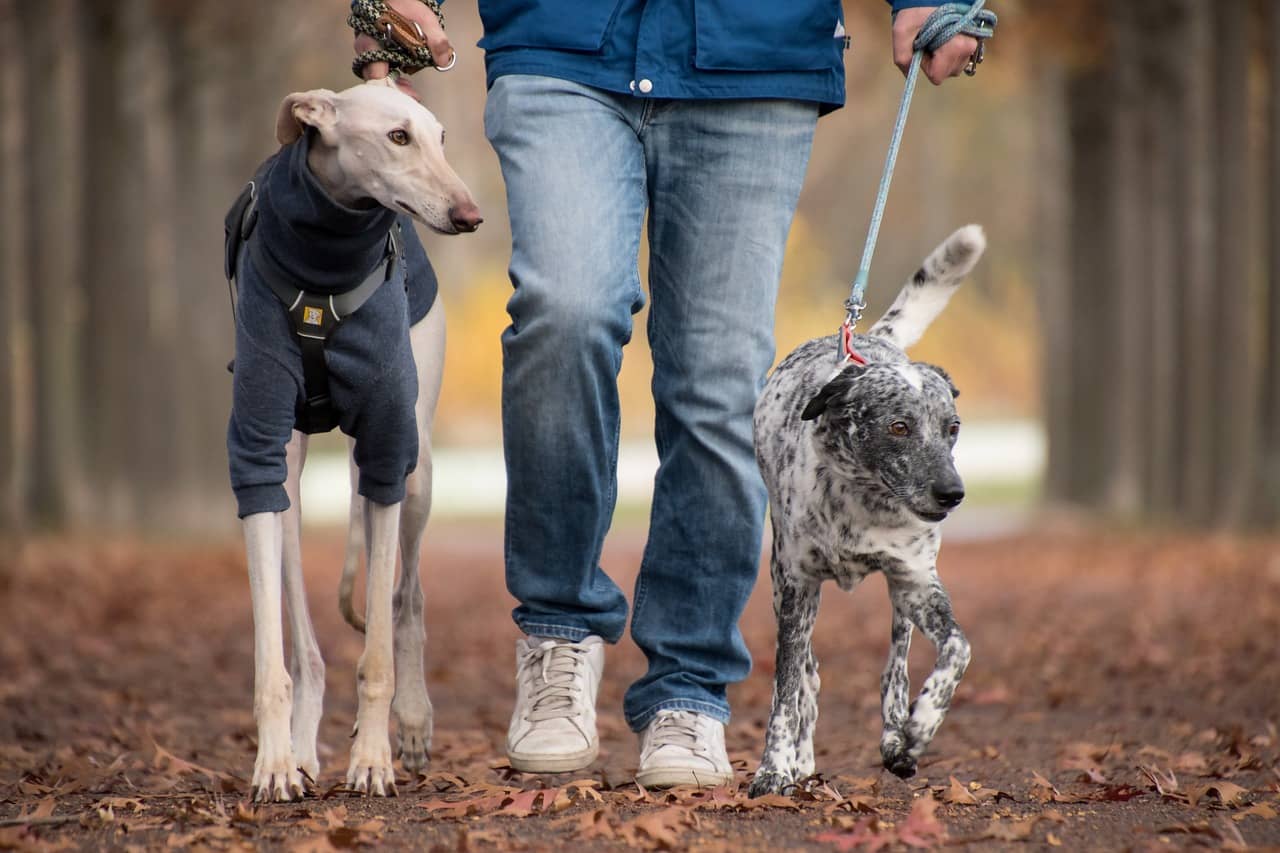
Modern dog training methods are fantastic because they enable us to manipulate a dog’s behavior in many ways without force. I wonder if this ability has contributed to confusion over the dog’s role in our lives. Should we be ‘controlling’ our dogs, or are we now partners?
Ethologist Roger Abrantes commented the other day in an article that he doesn’t like the word ‘command’ in dog training. He felt the word ‘command’ implies subjugation. And that set me to thinking!
Do we not subjugate our dogs? With our ability to train without force, are a dog and his trainer now a true partnership? Or is this concept merely an illusion
Unlike Dr. Abrantes, I am reasonably happy with the word ‘command’ in dog handling. While using it during the training process isn’t strictly accurate, it conveys, for me, the idea of an instruction that ultimately will not be optional. And I think that this is OK.
While I would be the first to refer to a good working relationship between dog and handler as a partnership, if we are honest, this is not really a very accurate description. A true collaboration is a working relationship between equals. Conversely, subjugation means to conquer, master, or bring under control. Even to enslave.
Table of Contents
Are dogs subjugated?
Most dog owners want to retain the option to choose where their dog sleeps, what he eats, how he greets their friends, when he takes a bath, how much noise he makes, what time he goes to bed, when he exercises, if and when he is allowed to mate, and the dog owner also has the right to sell any progeny of his dog to anyone he chooses.
This isn’t really a partnership. In fact, it is, to all intents and purposes, complete subjugation. The difference between the subjugated modern dog and the subjugated dog of fifty years ago lies in the methods used to get there.
Subjugation is a very emotionally charged word and not one we usually apply to animals. Fortunately, animals do not have the same attachment to the concept of ‘freedom’ as people do. Your dog is happy to be subjugated and could not care less about freedom or choice. Provided you feed him and are kind to him, he is happy to do what you have trained him to do and to do it so well that the illusion of teamwork is complete.
Teamwork or subtle control?
I know that when I work my gundogs in the field, we are seen and described as a team. I love that my dogs enjoy their work and find hunting and retrieving enormously rewarding. This makes them very easy to train. But the fact remains that much of what they do is not optional. When I say hunting stops and dogs ‘come to heel’, they do not have a choice. They can’t say, ‘I think I’ll just carry on here for a bit,’ or ‘You go ahead, and I’ll catch up when I’m done.’
While I am glad that old-fashioned notions of dominance and aggressive dog handling are being replaced by positive and non-confrontational methods, I don’t think we should forget who is in charge, or be ashamed of words like ‘command’ or even be afraid to correct a dog for an error if appropriate. Nor do I think we should forget that dogs are dogs and not people.
Dogs deserve our respect and to be treated with kindness and compassion, but they will always require a human’s protection and ultimate control.
How about you? Do you think of your dog as an equal or a partner? Does this have an effect on the way you treat him?








Comments (1)
Bearsays:
21/08/2023 at 19:42What are the modern dog training methods that enable us to manipulate a dog’s behavior without using force?